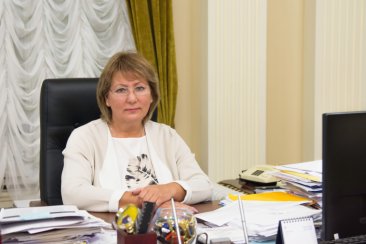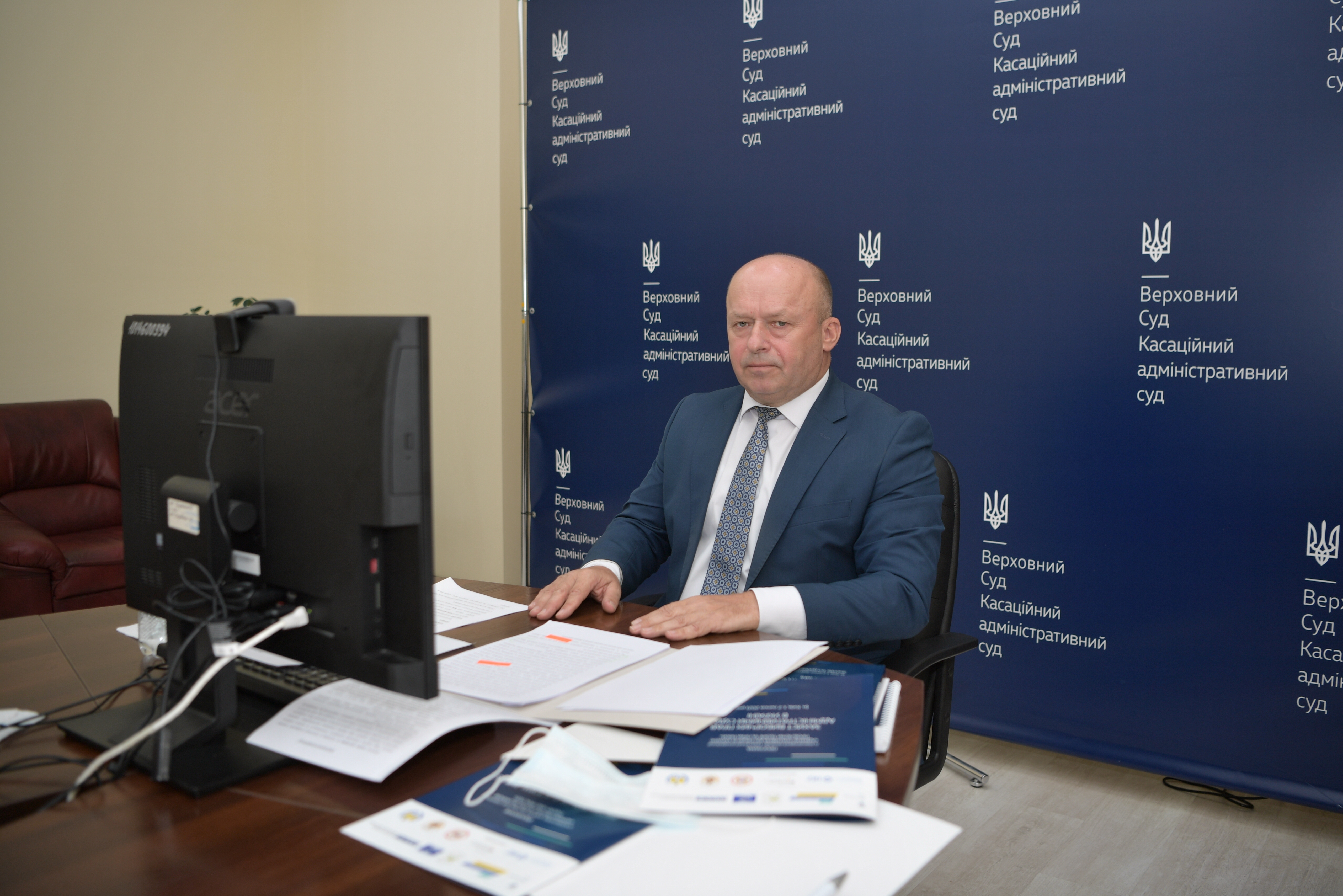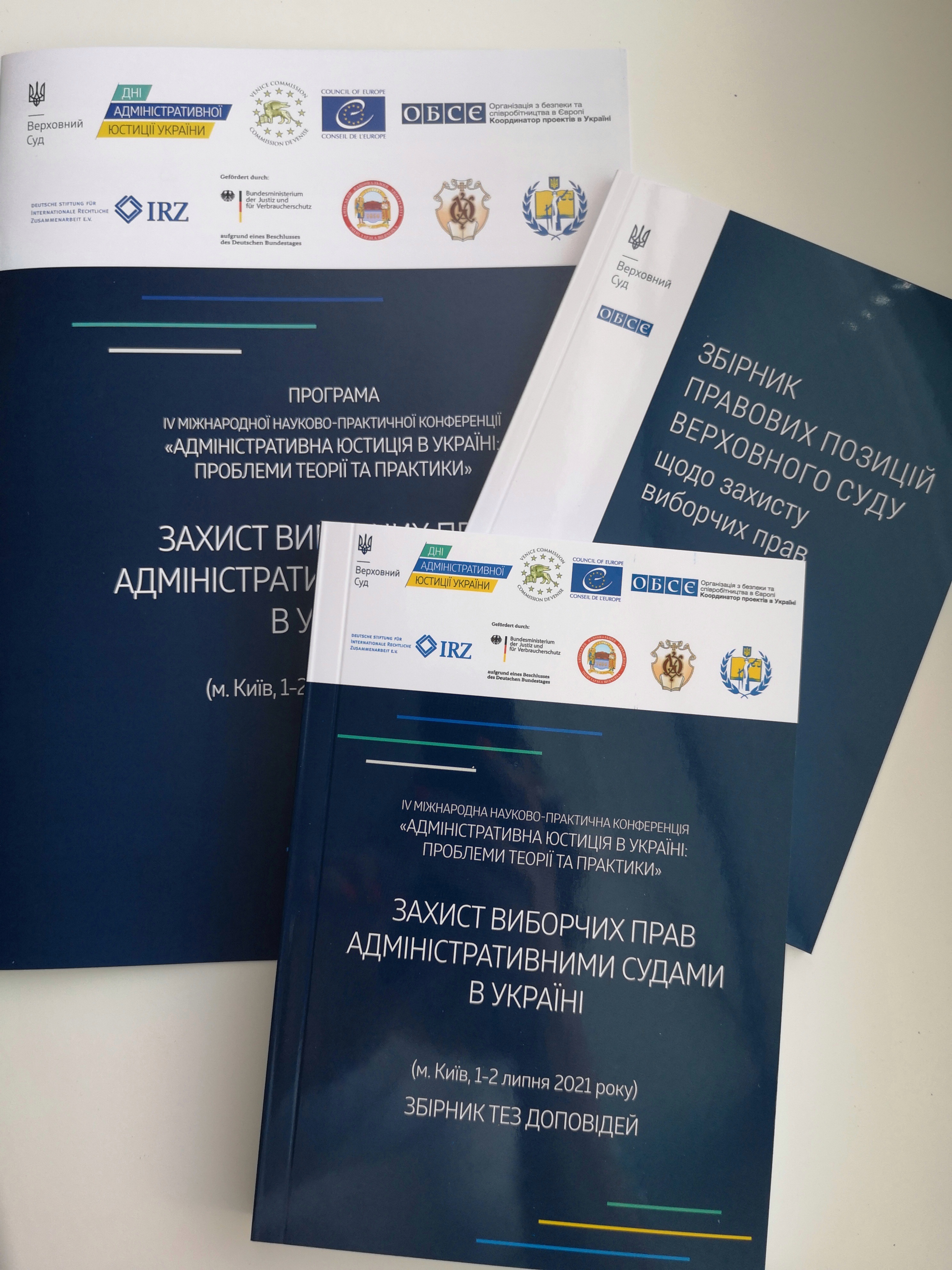Contact center of the Ukrainian Judiciary 044 207-35-46

Today, July 1, 2021, the IV International Scientific and Practical Conference "Protection of Electoral Rights by Administrative Courts in Ukraine" has started its work. The conference is dedicated to the problems of effective judicial protection of basic electoral rights of citizens and peculiar features of certain categories of cases related to the electoral process.
The event, which will last for two days, will be attended by judges, academic researchers, practitioners, and international experts interested in the current state of judicial protection of electoral rights.
Welcoming the participants of the event, SC President Valentyna Danishevska noted that this conference was taking place within the framework of the Days of Administrative Justice of Ukraine, which demonstrated the importance of the historic events of 2005, when the Verkhovna Rada of Ukraine adopted the Code of Administrative Procedure of Ukraine. The Code laid the foundations for strengthening the protection of the rights and freedoms of citizens in the field of public law relations, and also became the legal basis for the administrative courts in Ukraine to commence their activities.
"When considering disputes arising in connection with the election process, the courts stand guard over the free will of citizens and the protection of their fundamental right to vote. According to the well-established positions of the European Court of Human Rights, the very functioning of an efficient system for the protection of electoral rights in court is the main guarantee of ensuring free and fair elections in the country," said the President of the Supreme Court.
According to her, the credibility of the electoral process as a whole, and hence the perception and acceptance of elections within and outside the State, often depended even on the resolution of individual disputes.
Concluding her speech, the SC President noted that the experience of Germany, Lithuania and other European countries, as well as the case law of the European Court of Human Rights were interesting and very useful for the best provision and protection of electoral rights in Ukrainian courts.

Mykhailo Smokovych, President of the Administrative Cassation Court within the Supreme Court, underlined in his welcoming speech that the topic of the conference was chosen for a reason since electoral law in a democratic state is fundamental. Through the institution of elections, citizens actually carry out the socio-political reproduction of the State itself. This right of citizens must be protected, and such protection is exercised by administrative courts, which already have extensive experience in considering such disputes.
Mykhailo Smokovych remarked that judges of administrative courts, when resolving election disputes, were the ones who best saw collisions and imperfections in the electoral legislation. Therefore, the expected outcome of the conference is the formation of substantive guidelines by its participants, in particular for the Verkhovna Rada of Ukraine, to improve the electoral legislation, as well as the mechanism for ensuring the protection of electoral rights in administrative proceedings.
The Head of the Council of Europe Office in Ukraine Steen Nørlov reminded that previous year the European Community had celebrated the 70th anniversary of the Convention for the Protection of Human Rights and Fundamental Freedoms, and Art. 3 of the First Protocol to the Convention guaranteed the right to free elections, and this right was fundamental to the sustainable development of democracy. According to him, the judicial decisions in this process were a key element in building public confidence in the election results, and the quality of the judicial decisions determined the degree of this trust.

Steen Nørlov stressed that the Council of Europe supported the Government of Ukraine and Ukrainian society to ensure that the reforms and changes introduced in the electoral process were implemented in accordance with European norms and standards. National legal advisor to the OSCE Project Co-ordinator in Ukraine, LLM, Ph.D. in law Oleksandr Vodiannikov noted that the first and most important sign of the stability and endurance of a democratic regime was the ability of the national judicial system to protect, among other things, rights in a democratic electoral process. That is why the subject of this event is very important not only for Ukraine but also for the entire democratic world.
Oleksandr Vodiannikov said that the OSCE Project Co-ordinator expressed sincere gratitude to the Supreme Court for its fruitful cooperation in developing the rule of law, the sustainability of judicial case law, and expressed readiness for further support.
The Director of the German Foundation for International Legal Cooperation, Stefan Hülshörster, drew attention to the Foundation's long-standing fruitful and successful cooperation with Ukrainian administrative courts, which facilitated the exchange of experience.
Referring to the relevance of the chosen subject of the conference, he pointed out that the democratic process of shaping the political world could suffer if electoral rights and the right to hold elections were not respected in any country. Therefore, it is important to properly monitor compliance with the rules of their conduct.
President of the National Academy of Legal Sciences of Ukraine Oleksandr Petryshyn stated that the Academy and the Supreme Court, in particular the Administrative Cassation Court within the Supreme Court, had established a good tradition of holding annual scientific and practical wrap-up sessions in early July as a tribute to administrative justice in Ukraine. The subject of these events always cover crucial issues, since administrative justice is at the forefront of pressing problems in the political and legal development of the state, such as the protection of human rights, especially political rights.